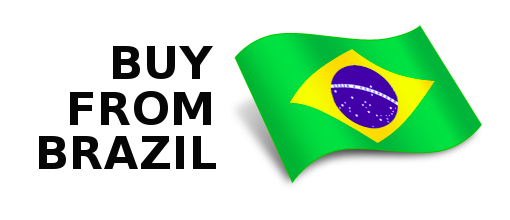Brazil is the world third biggest producer of shoes, and acknowledged for its top quality and low prices. There is no specific place to buy good quality and low priced footwear as every region has its own manufacturing hub. Women’s shoes tend to be a lot cheaper in Brazil than in comparison to other countries. Especially ballet shoes, trainers, sandals and leather shoes.
Havaiana Flip-flops are a unique Brazilian product. In 2000 when Havaianas became a global trend, they were up to 10 or even 15 times more expensive in other countries than in Brazil. Although this number has decreased it is still very advantageous to buy Havaiana flip-flops in Brazil. Flip-flops can’t be reduced to Havaianas, though they play a big part of the internal and foreign market. There are other big brands in this sector that also deserve attention, such as Ipanema, Azaléia and West Coast. Crocs is also a popular brand dedicated to aquatic and beach shoes.
Azaléia is a shoe company nearly as old as Havaianas. The company used to produce sandals and started manufacturing flip-flops too. Ipanema is an internationally know flip-flop brand, owned by Grendene, one of the biggest footwear manufacturers in Brazil. Ipanema is represented by the famous Brazilian model Gisele Bündchen.
Rider is a famous brand, known for it’s male footwear. It’s also owned by Grendene. Another major brand for men is West Coast, that produces not only flip-flops, but also boots and other shoes.
Reference in women’s and men’s shoes, handbags and accessories, Jorge Bischoff has its own concept of design. The products are distinguished by elegance with international standard and typical Brazilian energy. They are options to accompany all moments of the consumer, valued by the renowned signature of designer Jorge Bischoff.
Founded in 1972 by Anderson and Jefferson Birman, Arezzo is the largest retail brand of women’s fashion footwear in Latin America, bringing together concept, high quality and contemporary design. Today the Arezzo franchise network has more than 356 stores distributed in 180 municipalities and is present in all Brazilian states.
The manufacturing of shoes is spread throughout the country but some units deserve a special attention: Ceará, in the Northeast region; the cities of Jaú, Franca and Birigui, in São Paulo state; Belo Horizonte, in Minas Gerais state; and the regions of Vale do Rio dos Sinos and Vale do Paranhama, in Rio Grande do Sul state, are the biggest manufacturers in the country.

